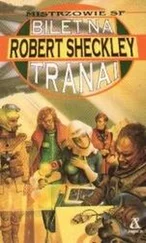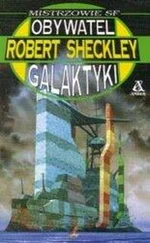Robert Sheckley - Privilege of Age
Здесь есть возможность читать онлайн «Robert Sheckley - Privilege of Age» весь текст электронной книги совершенно бесплатно (целиком полную версию без сокращений). В некоторых случаях можно слушать аудио, скачать через торрент в формате fb2 и присутствует краткое содержание. Жанр: Фантастика и фэнтези, на английском языке. Описание произведения, (предисловие) а так же отзывы посетителей доступны на портале библиотеки ЛибКат.
- Название:Privilege of Age
- Автор:
- Жанр:
- Год:неизвестен
- ISBN:нет данных
- Рейтинг книги:3 / 5. Голосов: 1
-
Избранное:Добавить в избранное
- Отзывы:
-
Ваша оценка:
- 60
- 1
- 2
- 3
- 4
- 5
Privilege of Age: краткое содержание, описание и аннотация
Предлагаем к чтению аннотацию, описание, краткое содержание или предисловие (зависит от того, что написал сам автор книги «Privilege of Age»). Если вы не нашли необходимую информацию о книге — напишите в комментариях, мы постараемся отыскать её.
Privilege of Age — читать онлайн бесплатно полную книгу (весь текст) целиком
Ниже представлен текст книги, разбитый по страницам. Система сохранения места последней прочитанной страницы, позволяет с удобством читать онлайн бесплатно книгу «Privilege of Age», без необходимости каждый раз заново искать на чём Вы остановились. Поставьте закладку, и сможете в любой момент перейти на страницу, на которой закончили чтение.
Интервал:
Закладка:
PRIVILEGE OF AGE
By Robert Sheckley
That morning at the Crystal Sands Home for Assisted Living near Roseburg, Oregon, was different. Mr. Anderson didn't know what it was, but he noticed it at as he got out of bed, dressed, and put on his thick glasses.
What was different? For one thing, Ed Simmons was walking up and down the hallways, calling out, "Come on out! Everybody out!"
Simmons was a burly black man, in charge of Sports and Physical Education at the Home. He was invariably cheerful. But this morning he seemed to be bubbling over with some unusual energy. "Everybody out!" he was calling. "This is the big day!"
What day could that be, I wondered. All days were the same at the Rest Home, where you came to die with dignity, out of sight of your friends and family. Had Simmons acquired a new croquet set for us? It scarcely seemed worth such enthusiasm. Was there apple pie with Miracle Whip for lunch? But it was still too early for lunch. Had a state senator come to call, to remind us that we were what America was all about?
"Come on, Mr. Anderson," my nurse, Miss McGinnis, said. "Stop thinking! It's time for doing!"
Do what? What on Earth was the staff so excited about?
I decided to find out. Usually I lounge around in my bathrobe half the morning, but today I came out of my room, with the help of my aluminum walker. I got down the hall just fine, and then down the broad steps that led to the main recreation area. My legs weren't so bad this morning. Everyone else was there, too. Even Margie Boynton was there, and she had seemed on the verge of death last night when her cancer kicked up.
She peered at me with her big blue bloodshot eyes. "What's happening, Mr. Anderson? What on earth is going on?"
"Don't know, expect we'll find out soon."
We went down the hall, past the cooking area, with its smell of turnips, and out the big wooden doors and onto the porch. We were all there--the men mostly in old, highly pressed suits of an unfashionable cut, their black plastic spectacles perched on their noses, the women in their voluminous dresses in pale blues, whites and yellows, wearing their bone-colored orthopedic shoes, most of them with purses, some of them wheeling their oxygen bottles, others clutching their drip stacks, with the needles still in their arms.
"This is it!" Simmons was crying. "Oh, Lordie, the day has come! Praise the Lord, it's here at last!"
"What is the fool talking about?" Mr. Smith asked me.
"No idea," I said. "He's probably drunk."
We followed their cries and gestures, down the steps, down the paved sidewalk, and walking faster than we usually do, limping along with our canes and walkers, down to the end of the sidewalk and onto the lawn, and then across the lawn toward the little group of maples at the end of the property.
We got there, most of us out of breath, forcing ourselves to move on tired legs and ailing bodies.
Margie peered at me with her big blue bloodshot eyes. "What's happening, Mr. Anderson?"
"Don't know, expect we'll find out soon."
"This is it!" Simmons was shouting. "It's the big day, the one you've been waiting for!"
"What is the fool talking about?" Mr. Smith asked me.
"No idea. Doubt he knows."
All of the staff were skipping around, filled with an energy we had never seen before. I wondered if they had been granted a pay increase. The only thing worse than the way the elderly are treated around here is the way those who care for them are treated.
Beyond the clump of trees there had always been a high masonry wall that marked the limits of the Rest Home property. There was no wall there now. The meadowland, greener than I remember it and covered with bright little flowers, ran on until it reached distant dim blue mountains. Where had they come from? Was this what they had called us out for? To see this extension of the Rest Home property?
We stopped where the wall had been, uncertain if we should proceed.
"Keep on going!" Mr. Simmons called out. "The best is yet to come!"
"Hadn't that been a line from some old poem? I hadn't known Mr. Simmons knew any poetry. Only calisthenics. And wasn't that Nurse Quinlan reciting lines from a Tennyson poem? "Here are cool mosses deep, and through the moss the ivy creeps, and from the rocky cliff the poppy hangs in sleep."
It was then I became aware of the music. I don't know when it began. Maybe when I got outdoors, or when I came out of my room, or even earlier, it might have started in my sleep. You know how a song can just turn over and over in your mind, and you're not even aware of it for a long time? That's what this was like. But this was no simple song. This was a symphony of voices, a male chorus and a female chorus, and they were singing or chanting at each other, and sometimes both choruses sang together.
And at the same time, they weren't voices at all. They were instruments, and they were playing a great song of joy and praise. You had to smile to hear that music. It made all of your fears and doubts seem foolish indeed.
I became aware that the others were listening to something, too. The faces of those old people were ecstatic and beautiful, and maybe my face was, too.
I don't know when the first moment of doubt began. Maybe it was when we noticed Mr. Simmons lying on the grass. His face was twisted and he was crying. "It isn't fair," he was saying. "We should be allowed to go, too! What'll they do without us?" One of the nurses was trying to comfort him, but he appeared inconsolable.
That told us something was not right. But was it not right with him, or with the situation in general?
Or maybe my doubt began when the great chorus began to go sour, when we began to hear false notes, disharmonies, when strange little rhythms began to appear in the stately forward marching beat of the main theme.
Whatever it was, the foremost man--that was me--came to a sudden stop. The others all stopped behind me.
"What's the matter, Mr. Anderson?" a woman asked me.
I didn't turn to face her. But I said, "This whole situation is screwy. Someone's fooling around with us. It's another defeat. Another broken promise."
"Who is doing it, Mr. Anderson?"
"It's got to be the government again, and all the helpful organizations. They've decided to help us again. They've prepared this little outing for us. Only they didn't get it quite right, did they? The song has gone bad. Even the lighting is wrong.
The fine day had turned dark, with storm clouds rising, and a lurid yellow band around the horizon.
"He's right," the woman said, and others nodded. I must have been speaking in a loud voice. One by one they began to turn away, to start walking back to the Rest Home. Some of them were crying.
I realized then that I had said the wrong thing. I had killed hope. Even if what I said was true, I should never have said it. What was there back in the sanitarium but death and television? At least by going on we had a chance.
"Hey!" shouted. "I was only kidding!"
"They hesitated, not sure what to make of what I was saying.
"You folks going back to your Oreos and milk? I'm going on. Even if it's false, this is the best thing that ever happened to me."
I marched toward the end of the meadow.
Glancing over my shoulder, I saw that all the old-timers were coming with me. The Rest home staff were waving at us. We waved back, but we kept on going.
I stepped off the Rest Home property.
I guess you think I'm going to tell you it was all a dream? Wrong. What I'm going to tell you is that after I left the property, I found myself in a small plain room with a table, a chair and a computer. On the computer screen were the words: "Write what happened to you. Then exit to your left."
So now I've told you what happened to me. And now I'm going to exit to my left. If I ever get a chance to write you about what happens next, rest assured you'll be the first to hear about it.
Интервал:
Закладка:
Похожие книги на «Privilege of Age»
Представляем Вашему вниманию похожие книги на «Privilege of Age» списком для выбора. Мы отобрали схожую по названию и смыслу литературу в надежде предоставить читателям больше вариантов отыскать новые, интересные, ещё непрочитанные произведения.
Обсуждение, отзывы о книге «Privilege of Age» и просто собственные мнения читателей. Оставьте ваши комментарии, напишите, что Вы думаете о произведении, его смысле или главных героях. Укажите что конкретно понравилось, а что нет, и почему Вы так считаете.






